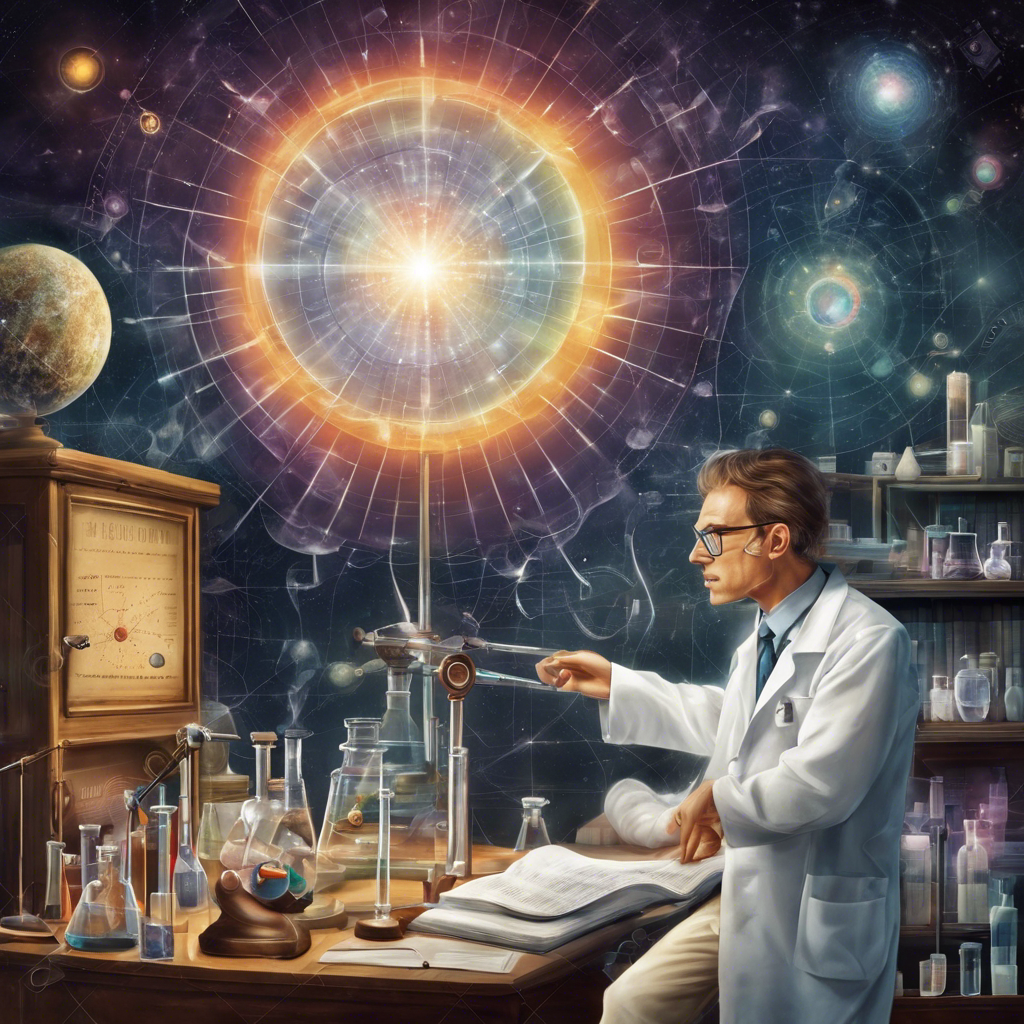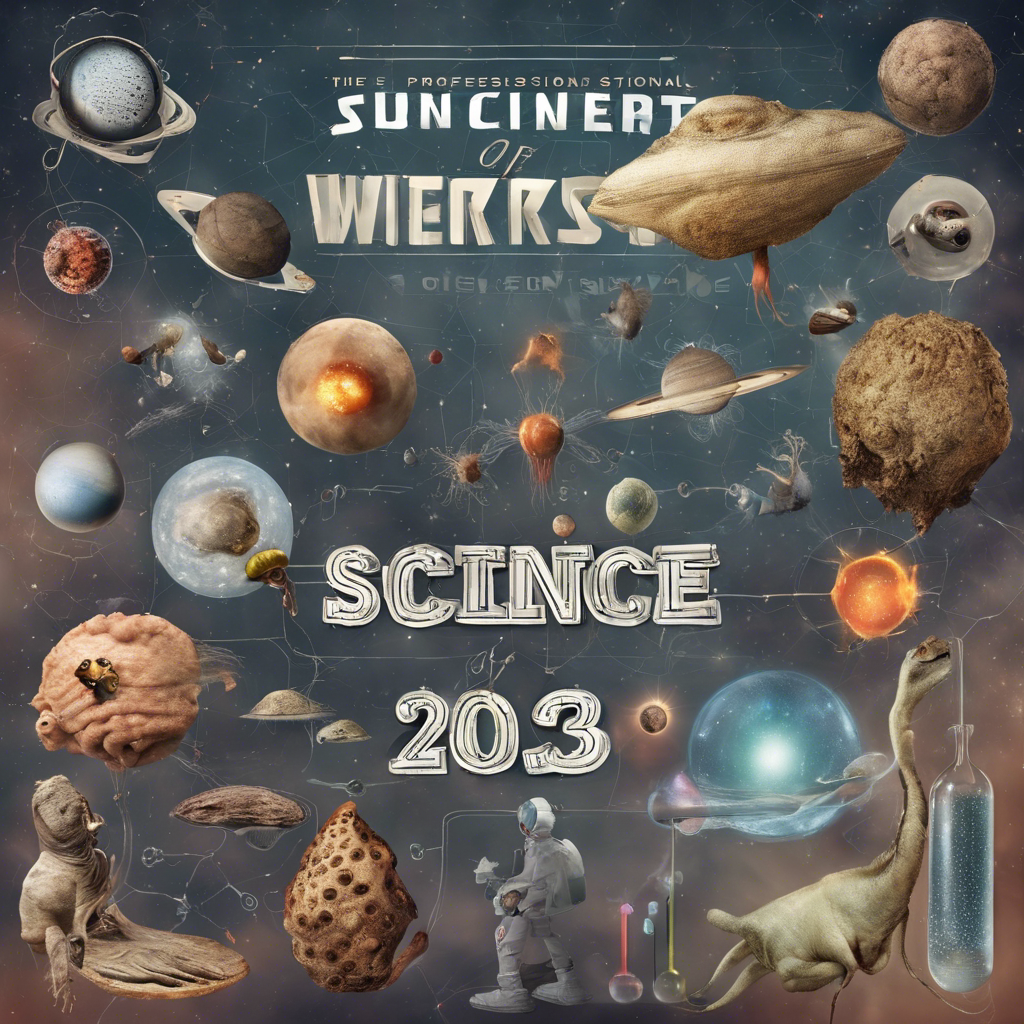The Greatest Mysteries of Science: Unanswered Questions That Keep Scientists Awake at Night

Exploring the Depths of the Unknown
As we bid farewell to a year filled with challenges and uncertainties, it is only fitting to delve into the most captivating open questions in the field of science. These questions not only highlight the boundless nature of knowledge but also remind us of the mysteries that continue to elude us. From the composition of the universe to the origins of life and the existence of extraterrestrial intelligence, these enigmas have fascinated scientists for centuries. In this article, we will embark on a journey through the most perplexing questions, shedding light on the intricacies of our world and igniting our curiosity for the unknown.
What is the Universe made of?
The composition of the universe remains one of the greatest enigmas in science. While we have a grasp on the familiar atoms that make up 5% of the universe, the remaining 95% is shrouded in darkness. Dark matter, comprising roughly 27% of the universe, exerts gravitational pull on visible matter, yet eludes detection. Dark energy, constituting around 68%, pushes galaxies apart, accelerating the expansion of the universe. Scientists have been tirelessly searching for answers, proposing theories that challenge Einstein’s theory of gravity, but the true nature of dark matter and dark energy remains elusive.
How did life come about?
The origin of life on Earth, which emerged over 3.5 billion years ago, is a profound mystery. Scientists seek to understand how nonliving atoms transformed into complex molecules that eventually gave rise to the first living entity. The transition from inanimate matter to a chemical machine capable of metabolism and reproduction continues to perplex researchers. The fact that living matter possesses intentionality adds another layer of complexity to this puzzle.
Are we alone in the Universe?
The question of extraterrestrial life has captivated the imaginations of scientists and the general public alike. Beyond the existence of life elsewhere, the quest for intelligent extraterrestrial civilizations raises intriguing questions. How common is life in the universe? And if intelligent life is abundant, why haven’t we made contact? Exploring these mysteries not only sheds light on our place in the cosmos but also has profound implications for our understanding of our own future and the planet we call home.
What makes us human?
Despite sharing a significant genetic similarity with our primate relatives, what sets humans apart? Is it our larger frontal cortex, our opposable thumbs, or our ability to use tools and communicate through language? The quest to unravel the essence of humanity encompasses the study of our cognitive abilities, cultural development, and the emergence of consciousness. Understanding the factors that distinguish us from other species offers insights into the evolution of our species and the complexity of the human experience.
What is consciousness?
The nature of consciousness remains one of the most elusive and intriguing questions in science. How does the brain generate the sense of self and the unique experience of consciousness? Some even speculate about a potential connection between consciousness and quantum physics. Exploring the purpose and origin of consciousness raises profound philosophical and scientific implications, challenging our understanding of the human mind and its place in the universe.
Why do we dream?
Despite spending a significant portion of our lives in sleep, the purpose of dreaming continues to elude us. Do dreams serve a physiological or psychological function, or are they simply random images generated by a resting brain? Sigmund Freud’s theory of dreams as expressions of repressed desires adds another layer of intrigue to this question. Exploring the mysteries of dreams provides insights into the workings of the human mind and the depths of our subconscious.
Why does matter exist?
According to the laws of physics, matter should have an equal counterpart of antimatter. However, the abundance of matter in the universe suggests a fundamental asymmetry. The disappearance of antimatter remains a puzzle, as any interaction between matter and antimatter results in their mutual annihilation. Unraveling the mystery of this asymmetry holds the key to understanding the fundamental nature of the universe and its origins.
Are there other universes?
Modern theories in cosmology and particle physics suggest the existence of other universes, each potentially possessing unique properties. However, confirming the existence of these parallel universes poses significant challenges. Exploring the concept of a multiverse raises profound questions about the nature of reality and the limits of scientific inquiry.
Where will we put all the carbon?
As industrialization continues to accelerate, the release of carbon and methane into the atmosphere contributes to global warming. Understanding the impact of human activities on the environment is crucial for the future of our planet. The urgent need to address this issue requires global action and individual responsibility to mitigate the effects of climate change on future generations.
How can we get more energy from the Sun?
With the pressing need for sustainable energy sources, harnessing the power of the sun offers a promising solution. Exploring more efficient ways to utilize solar energy and replicating fusion processes on Earth holds the key to meeting our energy demands. Progress in this field is essential to ensure a sustainable future for humanity.
Conclusion:
The mysteries that persist in the realm of science remind us of the boundless nature of human curiosity and the endless pursuit of knowledge. From the composition of the universe to the origins of life and the complexities of human consciousness, these questions challenge our understanding of the world and our place within it. As we embark on the next chapter of scientific exploration, let us embrace the unknown and continue to seek answers to these captivating enigmas.




